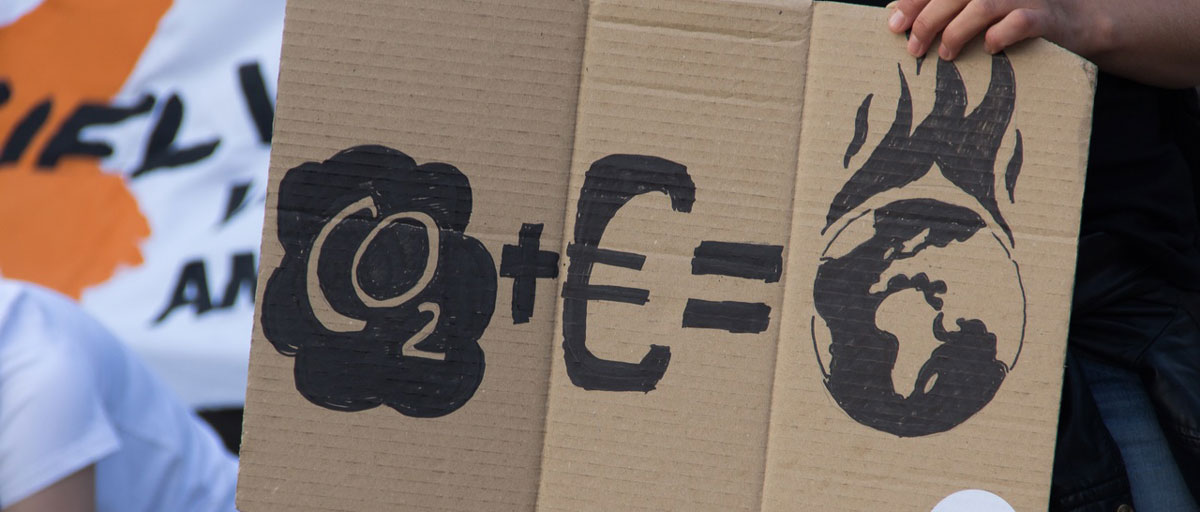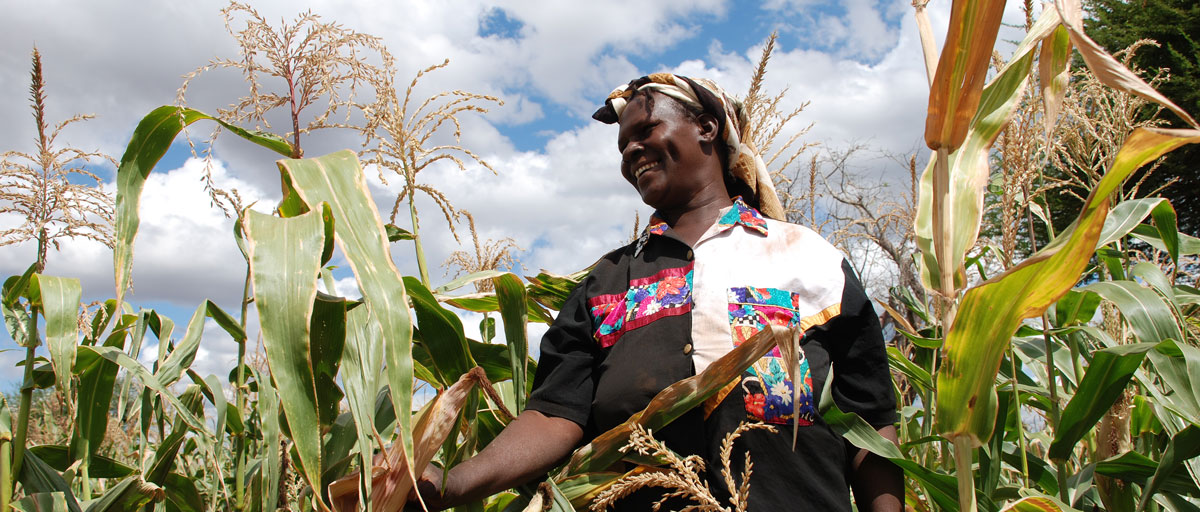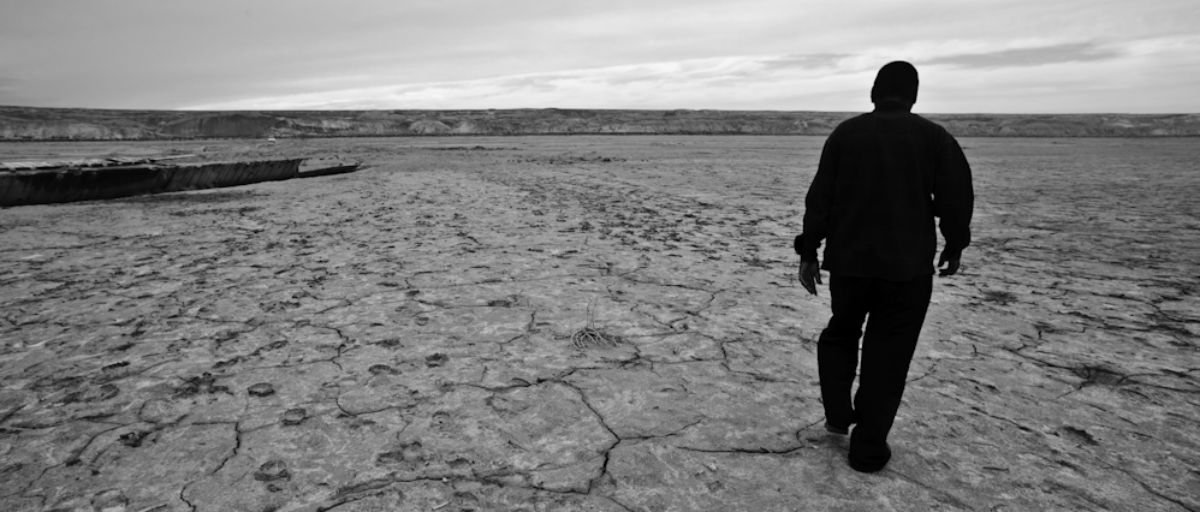Bildtext får vara max två rader text. Hela texten ska högerjusteras om den bara ska innehålla fotobyline! Photo: B. Christensen/Azote
Economic optimisation
Better to be safe than sorry?
Profit-maximizing approaches are most likely to produce outcomes that harm people or the environment. But it depends on the circumstances whether a sustainable or a safe approach is most suitable, new study argues
- The researchers used mathematical experiments to analyse three grand concepts of environmental policy
- While the concept of profit maximization can be successful in bringing down costs of greenhouse gas reductions it does not suffice to avoid the tipping of critical elements in the Earth system
- Similarly, choosing between a safe or a sustainable approach for dealing with an environmental challenge depends on the circumstances
While being successful in bringing down costs of greenhouse gas reductions for instance, the concept of profit maximization alone does not suffice to avoid the tipping of critical elements in the Earth system which could lead to dramatic changes of livelihoods.
This is the conclusion from a study recently published in Nature Communications co-authored by centre researchers Steve Lade and Jonathan Donges together with colleagues from Potsdam Institute for Climate Impact Research and Department of Physics, Humboldt University in Germany.
The researchers use mathematical experiments to compare economic optimization to the governance concepts of sustainability and the more recent approach of a safe operating space for humanity.
All of these turn out to have their benefits and deficits, yet the profit-maximizing approach shows the greatest likelihood of producing outcomes that harm people or the environment.
“We find that the concept of optimization of economic welfare might in some cases be neither sustainable nor safe for governing modern environmental change,” says lead author Wolfram Barfuss from the Potsdam Institute for Climate Impact Research (PIK, member of Leibniz Association) and Humboldt University Berlin.
He explains:
“Economic optimization can be quite effective in reducing current greenhouse-gas emissions, it certainly has its strengths. Yet under human-made global warming, we face a world full of complex non-linearities, namely the tipping elements in the Earth system. The ice sheets of Greenland and Antarctica might collapse at some point if greenhouse-gas emissions do not get reduced, or the great circulation systems in ocean and atmosphere could fundamentally change. In such a setting, optimization can lead to dangerous side effects. Even for relatively high risks, and even if profit-maximizing agents in our calculations are far-sighted, they tend to accept the possibility of detrimental environmental and societal impacts.”
Difficult to calculate the timing of a tipping point
While governments worldwide agreed on ambitious targets such as the 17 UN Sustainability Goals and the Paris Agreement which aims at limiting global warming to well below 2 degrees Celsius, there is no consensus on how to reach those targets.
The researchers identified and analysed three big concepts:
1. Economic optimization (act to maximize your expected profit, with discounted future)
2. Sustainability (act to always stay above a minimum standard of expected profit, with discounted future)
3. Safe operating space approach, relying on the Planetary Boundaries concept (act to always stay within the safe space for humanity to ensure the functioning of the Earth’s life-supporting systems).
Neither economic thinking nor good will alone suffice to deal with a world full of complex non-linear dynamics
Jürgen Kurths, co-author
Take the Atlantic Overturning Circulation, better known as the Gulf Stream System, one of the great potential tipping elements in the Earth system. Physics and from observations show that it can be put at risk by global warming. "But we cannot yet calculate the timing of a tipping as well as the potential damages arising from it,” warns co-author Jonathan Donges.
Hence it is clear that economic optimization of climate policy would normally not be able to count it in as future costs.
“From the safe operating space perspective, we’d have to cut greenhouses gas emissions immediately to make sure the Gulf Stream does not get seriously disturbed, but you cannot say that ‘safe’ is always ‘best’. Because from a sustainability point of view, poverty reduction is one main goal," Donges explains.
"If we ended fossil fuel use too abruptly, the costs of a transition to clean energy would be substantial and might, at least for a certain time, rise energy and food prices and consequently impede the poverty reduction goal."
No master concept
It therefore depends on the circumstances whether a sustainable or safe approach is most suitable. The only thing clear is that in a no-policy scenario of unmitigated greenhouse-gas emissions, a Gulf Stream System collapse would also have negative impacts on poverty reduction.
“It turns out that there is no master concept for countering environmental challenges,” says co-author Jürgen Kurths, head of the PIK research department ‘Transdisciplinary Concepts and Methods’ and a pioneer of the complex non-linear systems analysis applied here.
“Yet our analysis is a first step to provide decision-makers with better insights on which concept for achieving the climate and sustainability targets works how and under which circumstances. Neither economic thinking nor good will alone suffice to deal with a world full of complex non-linear dynamics.”
Methodology
The researchers used the mathematical framework of Markov Decision Processes, in which an agent makes decisions about how to interact with its environment. Python code for the reproduction of the reported results plus interactive versions of the figures can be downloaded from https://github.com/wbarfuss/Paradigms.
W. Barfuss, J.F. Donges, S.J. Lade, J. Kurths. 2018. When optimization for governing human-environment tipping elements is neither sustainable nor safe. Nature Communications [DOI: 10.1038/s41467-018-04738-z]
Jonathan Donges' research focusses on dynamics and resilience of planetary social-ecological systems. He is particularly interested in developing a hierarchy of modelling approaches, from conceptual to full complexity models, for understanding the planetary co-evolutionary dynamics of human societies and their geophysical-biological environment.
Steve Lade is a researcher focusing on social-ecological system modelling, planetary boundaries, and poverty traps. Utilising his background in theoretical physics, Steve’s research applies theoretical modelling tools, such as dynamical systems theory and network theory, to the study of social-ecological systems.










